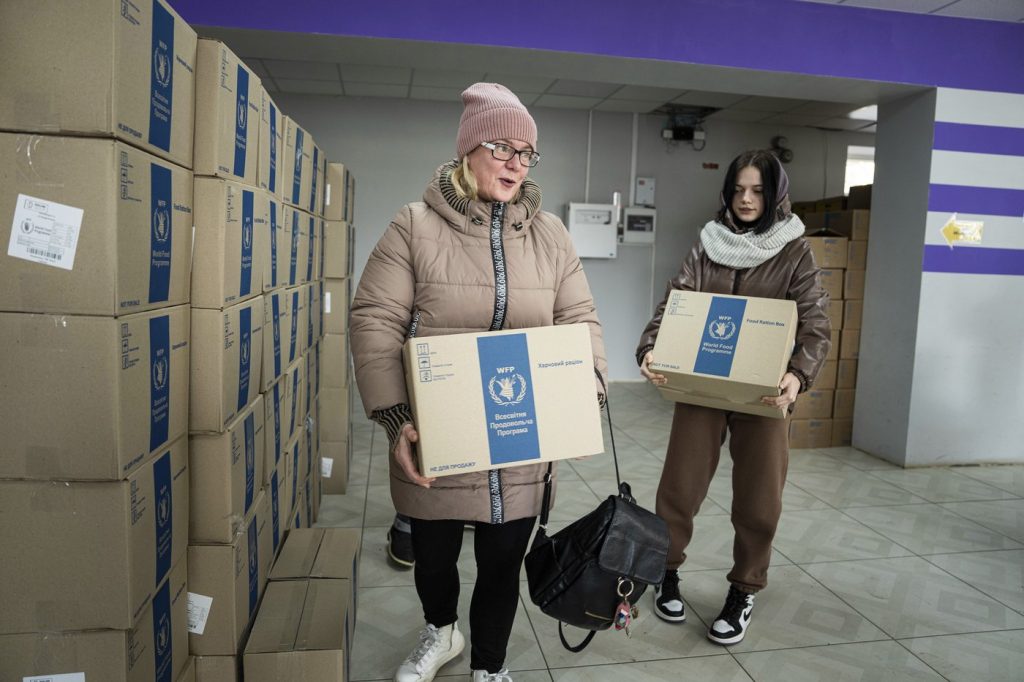The Trump administration's freeze on U.S. foreign aid has significantly impacted various United Nations organizations, forcing cuts to staff, budgets, and services across countries such as Afghanistan, Sudan, and Ukraine. Secretary-General Antonio Guterres highlighted the severe consequences of these funding freezes, noting that over 9 million individuals in Afghanistan will lose access to essential health and protection services. Additionally, past cash allocations that assisted 1 million people in Ukraine have been halted, and funding for support programs for refugees from Sudan has also run dry.
Independent NGOs, many of which collaborate with the United Nations, have reported numerous project closures due to the U.S. administration's decision to eliminate more than 90% of foreign aid contracts, resulting in approximately $60 billion in cuts and the termination of 10,000 contracts globally through the U.S. Agency for International Development (USAID). In response, U.N. agencies are hastily adjusting their operations, seeking alternative funding, and appealing to the administration for a restoration of U.S. support. Some are optimistic that federal court rulings may restore certain foreign aid allocations.
Among the most affected organizations is the U.N. High Commissioner for Refugees (UNHCR), which received over 40% of its nearly $5 billion budget from the United States last year. The pause in U.S. funding has initiated strategic cuts, including a reduction of $300 million in planned activities. Moreover, partners who provide critical support have withdrawn or paused their initiatives, affecting nearly 180,000 forcibly displaced women and girls across regions like Central African Republic, Uganda, and South Sudan. In Ethiopia alone, 200,000 women and girls will face the closure of essential services, according to UNHCR spokesman Matthew Saltmarsh, who warned of inevitable additional cuts in life-saving assistance if new funding does not materialize soon.
The International Organization for Migration (IOM), which also relies heavily on U.S. funds, is feeling the impacts of the funding freeze. The agency, headed by Amy Pope from the United States, has reported that operations and staffing have been affected, and it was documented that some 3,000 employees received dismissal notices related to U.S. resettlement program layoffs following the funding cuts.
The World Health Organization (WHO) has also faced challenges due to U.S. funding reductions. The organization has been particularly impacted since the Trump administration announced its withdrawal from WHO, with full effects set to take place next January. WHO warns that its global measles and rubella lab network, wholly funded by the U.S. at a cost of around $8 million annually, is at risk of collapse. Cuts have also affected responses to mpox and tuberculosis, traditionally funded by the U.S. at levels of $200-$250 million annually.
UNAIDS, the agency dedicated to fighting AIDS, reported that U.S. funding represents 55% of the total AIDS budget in Uganda. The freeze has led to the shutdown of vital drop-in centers providing antiretroviral therapy, with an estimated 750,000 people in Haiti also impacted by these funding cuts. In South Africa, a substantial portion of PEPFAR-funded staff involved in HIV response are facing termination as USAID implementing partners received notices to end their contracts.
In light of these challenges, the U.N. Office for the Coordination of Humanitarian Affairs (OCHA) announced the release of $110 million from its emergency response fund to address underfunded humanitarian crises worldwide. U.N. humanitarian chief Tom Fletcher referred to the U.S. funding cuts as a "body blow" to efforts aimed at saving lives, emphasizing the rapid severance of vital programs and the threat of a "perfect storm" facing humanitarian challenges globally.










